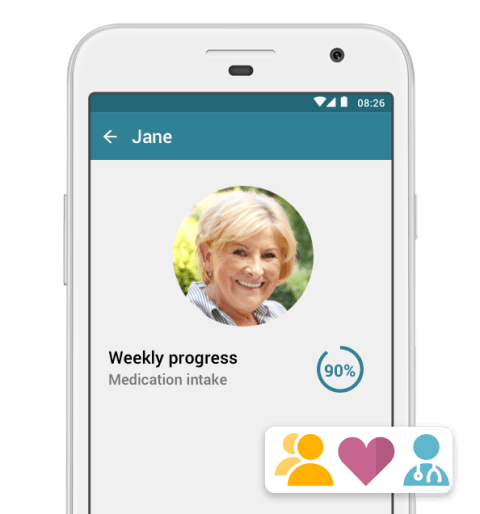Cystic fibrosis (CF) is a disease affecting the lungs and digestive system and other organs. It is an inherited or hereditary disease. While it is a serious disease and is progressive, people with cystic fibrosis can typically attend school and work. Patients usually require daily care but taking proper steps can maintain a better quality of life. Today’s blog provides a brief guide on healthy dieting and lifestyle tips for those living with cystic fibrosis.
Cystic Fibrosis Diet:
A proper diet is an important part of living a healthy lifestyle for anyone, but this is especially true when it comes to living cystic fibrosis (CF). CF can create issues with appetite, nutrient intake, and fat absorption. For patients living with cystic fibrosis, a balanced diet with fat, protein, fruits, dairy, and vegetables is key. Due to the decreased absorption of nutrients, it’s important to increase the consumption of each of these groups. Below are more specific recommendations to add to your diet.
- Salt: Cystic fibrosis can cause people to lose more salt through sweat than they would otherwise and can cause an imbalance of electrolytes along with dehydration. For this reason, salty snacks such as chips or pickles, or drinks high in electrolytes like sports drinks can help keep the body’s salt levels balanced.
- Fiber: Increasing the amount of fiber you eat is a great idea for everyone, but it is an especially good idea if you are living with CF. Eating more fiber reduces the risk of intestinal blockages. One of the easiest ways to increase your fiber intake is to eat cereals that are high in fiber for breakfast. A bonus is that they are often also high in protein.
- Zinc: Cystic fibrosis can put patients at an increased risk of infection. Consuming more zinc can reduce the risk of infection. Some great sources of zinc include beans, nuts, crab, lobster, and whole grains.
- Protein: Muscle loss is commonly experienced because of cystic fibrosis and eating more protein is an important step in preventing this. Meat, eggs, and dairy products are all excellent sources of protein.
- Antioxidants: Another great way to fight off infection is by consuming lots of fruits and vegetables high in antioxidants. A few healthy good foods for antioxidants are raspberries, kale, blueberries, and strawberries.
- Calcium: Osteoporosis is a common concern for people with CF and calcium helps reduce the risk. Dairy products are the easiest way to get lots of calcium, specifically whole milk, and high-fat cheese or yogurt.
Another key dieting aspect for people living with cystic fibrosis is ensuring high enough calory intake. People with CF need to consume far more calories than those without it and should oftentimes be eating amounts of calories that would be considered unhealthy otherwise. There are a few ways to ensure high enough calory intake. The first step is simply to avoid anything marked diet, low-fat, reduced-calorie, or no-fat. Some additional methods to boost calory intake are choosing high-fat beef and milk, adding extra butter or bacon to dishes when possible, snacking on dark chocolate, and adding peanut butter to meals when possible.
Many people living with cystic fibrosis may know all of this and simply do not have the appetite to consume as many calories and nutrients as they need. A great option for those not feeling up to a meal is to drink protein shakes. Alternatively, eating frequent, small meals throughout the day can be a better alternative than eating large meals only a couple of times a day. Aside from all these dieting tips, talking with your doctor about supplements to fill any gaps in vitamins can be a good idea.
For those with busy schedules eating well can be tricky. For some, meal planning or meal preparation may be a good option. By taking time once or twice a week to either plan meals or cook them and store them for later it is possible to keep better control over your diet. When planning meals, it is a good idea to try and include as many of the items listed above as possible for each meal.
It may seem daunting to take on a new diet, but it can play a huge role in increasing the quality of life for those living with cystic fibrosis. Keep reading to find out how other lifestyle changes can help in combination with dietary changes.
Cystic Fibrosis Lifestyle:
Along with a healthy diet, there are lots of lifestyle changes that can greatly increase the quality of life, and even life expectancy, for those living with cystic fibrosis. Some recommendations may seem obvious but are still worth mentioning. To begin with, patients with CF should avoid smoking and second-hand smoke as much as possible. Washing of hands and taking additional precautions to avoid infection is also important. Exercise and chest therapy can also be helpful.
Concerning exercise, many patients with CF may find it difficult to exercise. That said, exercising has been shown to increase respiratory muscle endurance, reduce the rate of pulmonary function decline, and lower the risk of death.
When it comes to exercising, there is no one way it needs to be done for patients with CF. The most important factor is choosing an exercise that raises the heart rate and exercises the lungs. However, it should also be enjoyable. By choosing a workout that is enjoyable patients are far more likely to stick with it and maintain a more active lifestyle overall. Team sports are a great choice for the added social aspect and the mental health benefits that go along with it. However, running, walking, golf, lifting weights, or even gardening are all fine choices that provide great benefits to patients. For people that have not been active in a while, it is a good idea to start relatively slow and increase the length and intensity of the workout gradually. For younger patients, it is especially important to start an active lifestyle early to build healthy habits that will serve them well throughout their life. The cystic fibrosis foundation has a great PDF you can check out for more tips on exercise for patients with CF.
Aside from the physical health aspects of living with cystic fibrosis, patients should be mindful of maintaining their mental health as well. Living with a disease like CF can make people feel alone. Fortunately, there are lots of support groups and organizations where patients can socialize, share experiences, and get help. Another great bonus from joining groups like these is the opportunity to learn more about improving all aspects of dieting and activity to best live with cystic fibrosis.
At the end of the day, living with cystic fibrosis presents a lot of challenges. However, patient life expectancy is higher than ever and by taking the proper actions patients can increase their quality of life.
Here are some other blogs we think you might enjoy:



